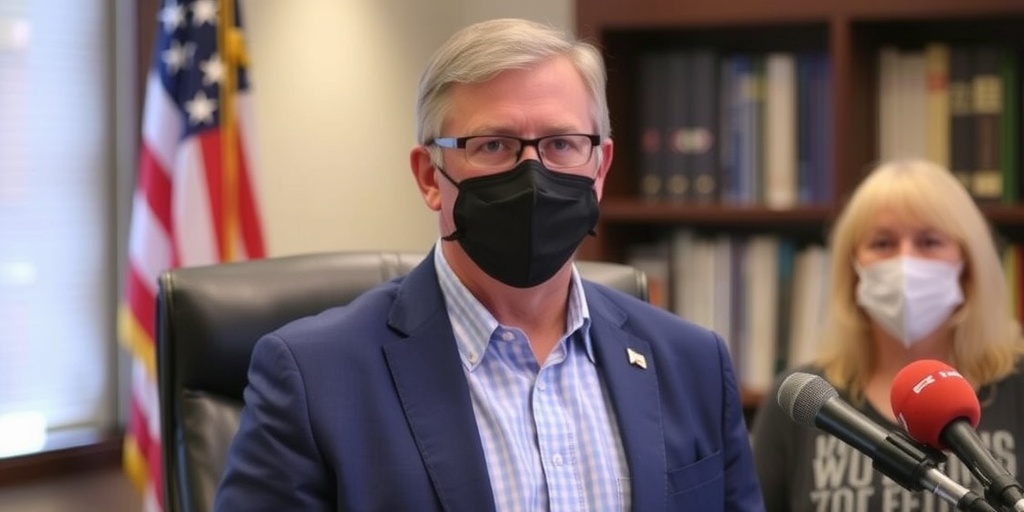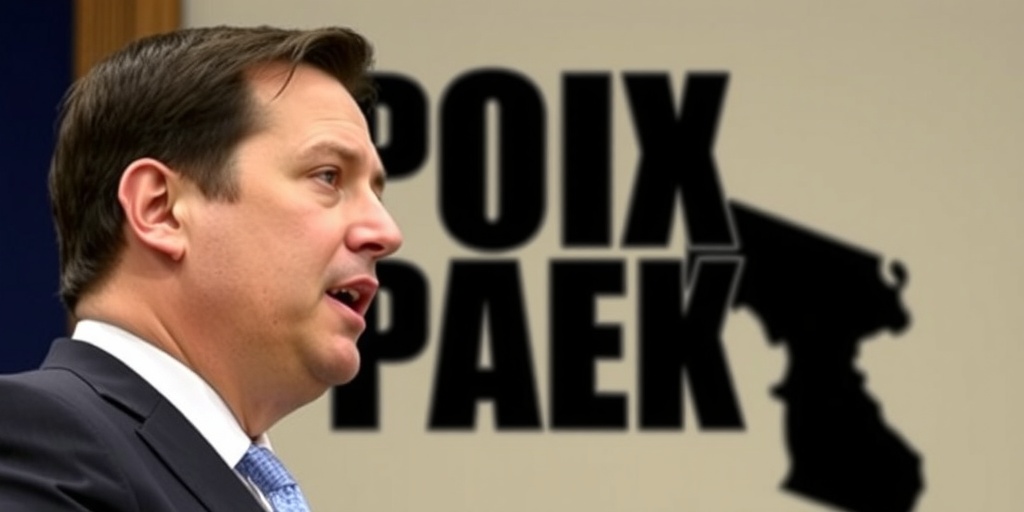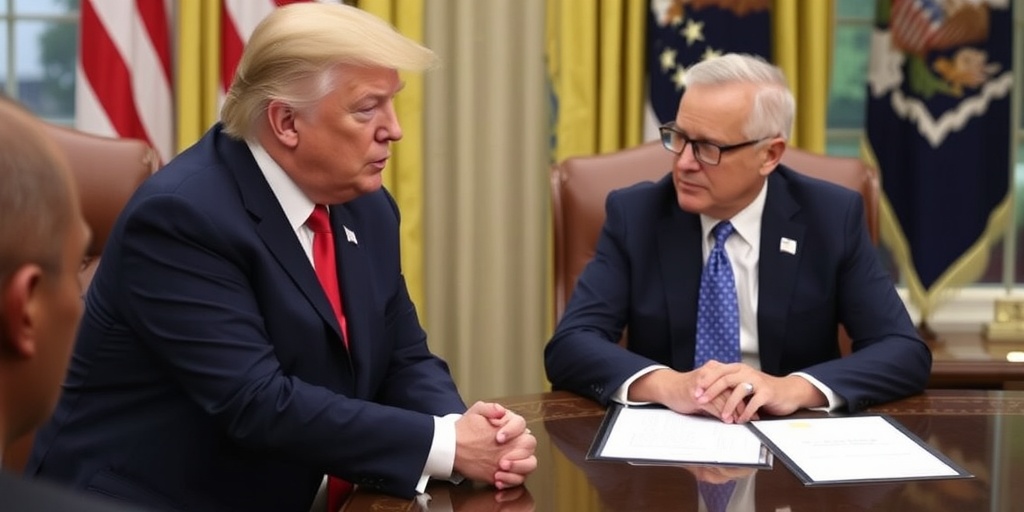Now Reading: COVID Disrupts Office: Democratic Governor Plans Comeback
-
01
COVID Disrupts Office: Democratic Governor Plans Comeback
COVID Disrupts Office: Democratic Governor Plans Comeback

In the aftermath of the 2022 midterm elections, where many Democrats exceeded expectations, one notable result stood out: the defeat of Nevada Governor Steve Sisolak. Despite his efforts to navigate the pandemic, Sisolak’s administration faced backlash over his COVID-19 lockdown measures, contributing to his loss to Republican Joe Lombardo. While other Democrats like Senator Catherine Cortez Masto managed to secure re-election, Sisolak’s defeat marked him as the only incumbent Democratic governor to lose that year.
As the Democratic Party seeks a renewed direction in light of recent setbacks and prepares to counter former President Trump and his allies, Sisolak is contemplating a political comeback. A seasoned politician and former Clark County sheriff, Lombardo now stands as a Republican figurehead opposing the predominantly Democratic Nevada Legislature and is set for re-election in the coming year.
In recent conversations, Sisolak reflected on the current state of Nevada and expressed concerns about the leadership of Governor Lombardo. He noted Lombardo’s veto of over 50 bills in his first legislative session and called attention to the economic challenges facing the state, emphasizing how decreased international flight traffic, particularly from Canada and Mexico, could hinder Nevada’s tourism-dependent economy. Sisolak pointed out that this economic strain could lead to job losses as fewer people can afford vacations to Las Vegas amid rising costs for travel and living.
Sisolak lamented actions taken by Trump during his presidency, such as visa cancellations affecting international students at the University of Nevada, Las Vegas, and layoffs of federal employees. He pointed out that these aren’t just statistics; they represent real families and livelihoods affected by political decisions. He stressed the need for President Biden to take a firmer stance on these issues, acknowledging the tightrope walk involved in working with Trump.
While weighing his options for a rematch challenge against Lombardo, Sisolak acknowledged encouragement from constituents and friends to consider running again. He mentioned recent interactions where citizens expressed their desire for him to return to office, calling these moments “heartwarming.” With the decision hanging in the balance, Sisolak hinted at ongoing polling efforts to gauge public sentiment regarding his previous governorship and future prospects. This polling is being conducted by John Anzalone, a well-known Democratic pollster, as he prepares for the potential of both a primary and general election campaign.
As for other Democratic contenders, Sisolak responded to news that Aaron Ford, the current Nevada Attorney General, intends to run for governor. He underscored the gravity of the decision for Ford, expressing hope that his colleague has thoroughly considered this step alongside his family.
Reflecting on his 2022 election defeat, Sisolak attributed a significant portion of the backlash to the COVID-19 lockdowns, asserting that saving lives during the pandemic had been his priority. He maintained that he did not make his decisions with re-election in mind. He noted that while Nevada’s recovery from the pandemic lagged, voters appeared frustrated with the state of the economy, citing offerings from both Lombardo and Trump that had failed to alleviate concerns over the rising costs of living.
Sisolak acknowledged the introspection occurring within the Democratic Party, especially as it grapples with disconnection from working-class voters who feel overlooked. He pointed to a shift in focus among Democrats, suggesting that voters are more concerned about economic challenges than debates on cultural issues such as transgender athletes in sports. He sensed a disconnect, mentioning that voters wanted communication that aligns with their everyday struggles rather than being spoken down to on less pressing issues.
When asked about President Biden’s decision to run for re-election, Sisolak refrained from making judgments but expressed confidence in his interactions with the president, which he described as positive, failing to observe any signs of incapacity that critics have raised.
Looking ahead, he acknowledged the potential for voters to swing back to Democrats if economic conditions under Trump’s tariffs continue to hurt them. Sisolak expressed concerns about the current volatility of the stock market affecting individual savings, particularly vulnerable in a state like Nevada, where public employee funds are heavily invested in securities.
Ultimately, Sisolak believes that voters are in search of clarity and certainty regarding their economic future. He predicts that those dissatisfied with their current circumstances may consider returning to Democratic leadership in the upcoming elections, as the historical cycle of politics often sees people desiring change during tough economic times. As the political landscape evolves, Sisolak’s potential candidacy presents a key moment for both him and the Democratic Party, as they navigate the complexities of the electorate in Nevada.
Stay Informed With the Latest & Most Important News
Previous Post
Next Post
-
 01New technology breakthrough has everyone talking right now
01New technology breakthrough has everyone talking right now -
 02Unbelievable life hack everyone needs to try today
02Unbelievable life hack everyone needs to try today -
 03Fascinating discovery found buried deep beneath the ocean
03Fascinating discovery found buried deep beneath the ocean -
 04Man invents genius device that solves everyday problems
04Man invents genius device that solves everyday problems -
 05Shocking discovery that changes what we know forever
05Shocking discovery that changes what we know forever -
 06Internet goes wild over celebrity’s unexpected fashion choice
06Internet goes wild over celebrity’s unexpected fashion choice -
 07Rare animal sighting stuns scientists and wildlife lovers
07Rare animal sighting stuns scientists and wildlife lovers





















